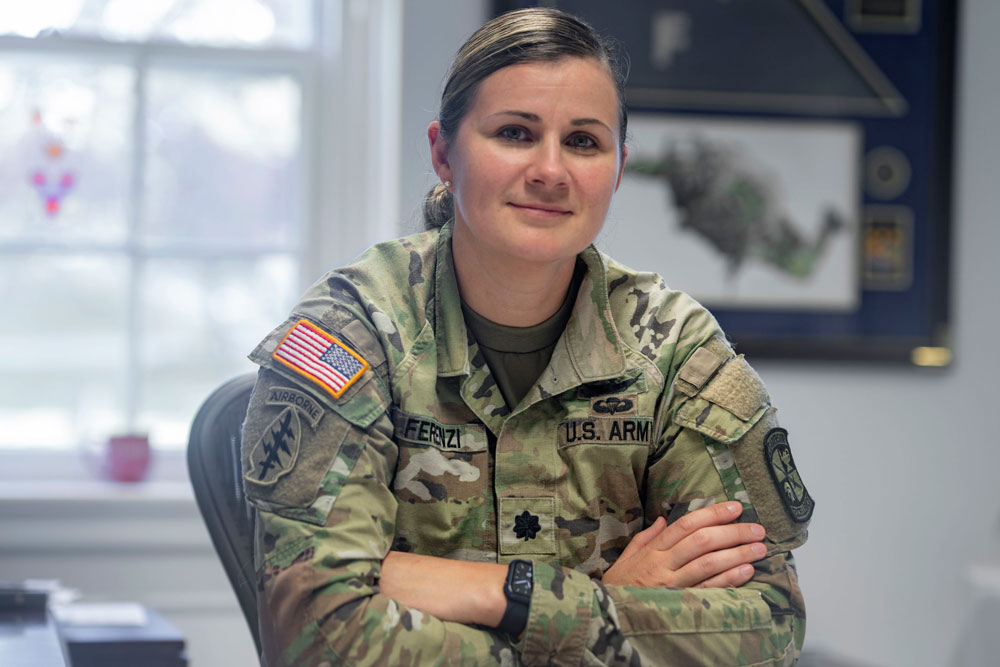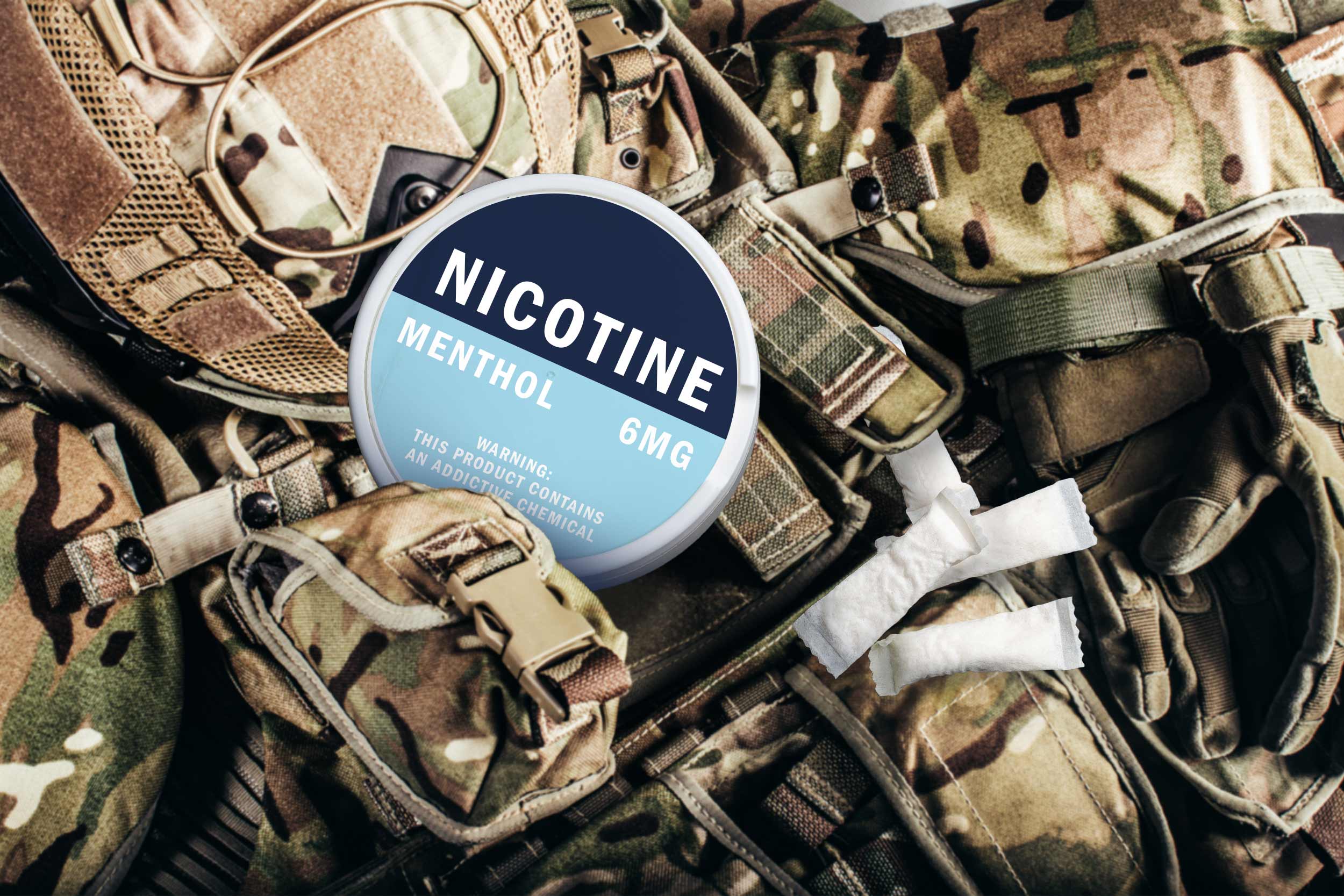Active-duty U.S. Army soldiers are nearly 10 times more likely to use addictive nicotine pouches than are civilians, putting them at a higher risk for cancer after leaving the service, according to a new study by University of Virginia researchers.
UVA researchers teamed with the Fort Liberty, North Carolina, Department of Public Health and the University of North Carolina-Chapel Hill’s Lineberger Comprehensive Cancer Center to survey nearly 2,000 soldiers on the base, formerly known as Fort Bragg. They asked the soldiers about their recent use of nicotine pouches, which are about the size of a piece of gum and typically kept nestled between a user’s cheek and gums.
The researchers found about a quarter of the soldiers surveyed said they had used nicotine pouches in the past month, compared to less than 3% of the civilian population.
“Military personnel historically use tobacco and nicotine products at much higher rates than their civilian counterparts,” said UVA’s Melissa Little, director of the Center for Nicotine and Tobacco Research at the University of Virginia School of Medicine. “Our results show that these same disparities are continuing with new and emerging products, like nicotine pouches.”
What’s unique – and also troubling – about the nicotine pouches, according to Little, is that they are made with synthetic nicotine and can bypass traditional tobacco regulations. They can also be flavored to appeal to younger users. And unlike chewing tobacco, pouch users swallow the juice rather than spitting it out.
Army Lt. Col. Elizabeth Eaton-Ferenzi, who commands UVA’s ROTC battalion, said she’s seen soldiers who are trying to quit smoking turn to nicotine pouches as way to “step down” from cigarettes. The problem arises, she said, when soldiers trade one addiction for another.
“I see a lot of people then get stuck on the pouches,” Eaton-Ferenzi said. “They don’t ever stop, and it ends up not being the steppingstone to quitting.”

Melissa Little, director of the Center for Nicotine and Tobacco Research at the University of Virginia School of Medicine, says she and colleagues are working on plans to discourage soldiers from relying on nicotine pouches. (Contributed photo)
Little, the UVA researcher, said that may be because pouches have higher doses of nicotine than cigarettes, so soldiers who view them as a smoking-cessation aid are actually ingesting more of the addictive drug.
Army Capt. Nicholas Hassell of UVA’s ROTC said the structure and demands of the military lead some soldiers to turn to nicotine pouches.
Most Department of Defense buildings and facilities prohibit smoking, vaping and chewing tobacco, he said. Nicotine pouches are less obvious and eliminate the need for soldiers to seek out smoking areas. Plus, he added, smoking and chewing tobacco are being seen more often as messy and unhygienic, but nicotine pouches don’t carry the same stigma.
In the field, he said, soldiers sometimes turn to nicotine pouches to both stay sharp and suppress hunger during extended exercises when sleep and food are scarce.
“With this job, work hours are unconventional and undetermined,” Hassell said. “You have people whose work schedule is thrown off due to mission requirements, and that sometimes forces people to stay awake more than 16 hours a day.”

Lt. Col. Elizabeth Eaton-Ferenzi, who commands UVA’s ROTC battalion, says in her military experience she’s seen soldiers use nicotine pouches when they’re trying to quit smoking. But the problem arises, she says, when soldiers trade one addiction for another. (Photo by Matt Riley)
Both Eaton-Ferenzi and Hassell said they were speaking from their perspectives and observations, and not as representatives of the Defense Department.
Littlesaid it is important to address nicotine pouch addiction now because 200,000 soldiers leave the service for civilian life each year, and the health effects of continued nicotine use can be significant.
Researchers found nicotine pouch users in the Army were typically young, male, white and unmarried. They also typically used chewing tobacco, cigarettes or vapes. Eaton-Ferenzi said in her experience, nicotine use is more common for enlisted soldiers than for officers.
“We are currently working on addressing these high rates of nicotine pouches by developing tailored interventions for military personnel,” Little said. “Given that military personnel sacrifice to serve our country, providing them with the tools to lead the healthiest lives possible is the best way we can give back.”










